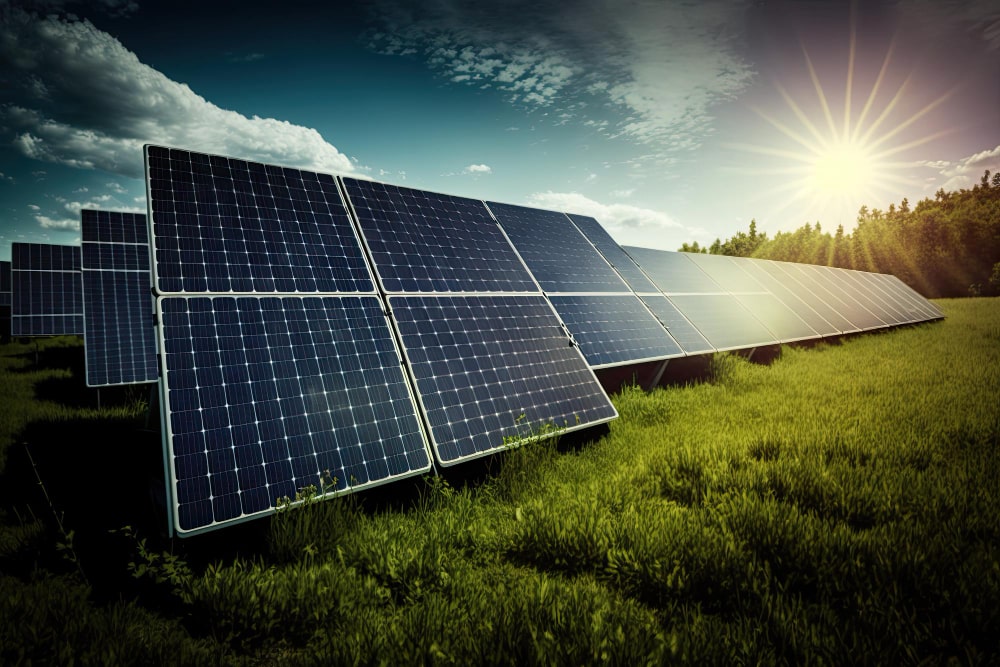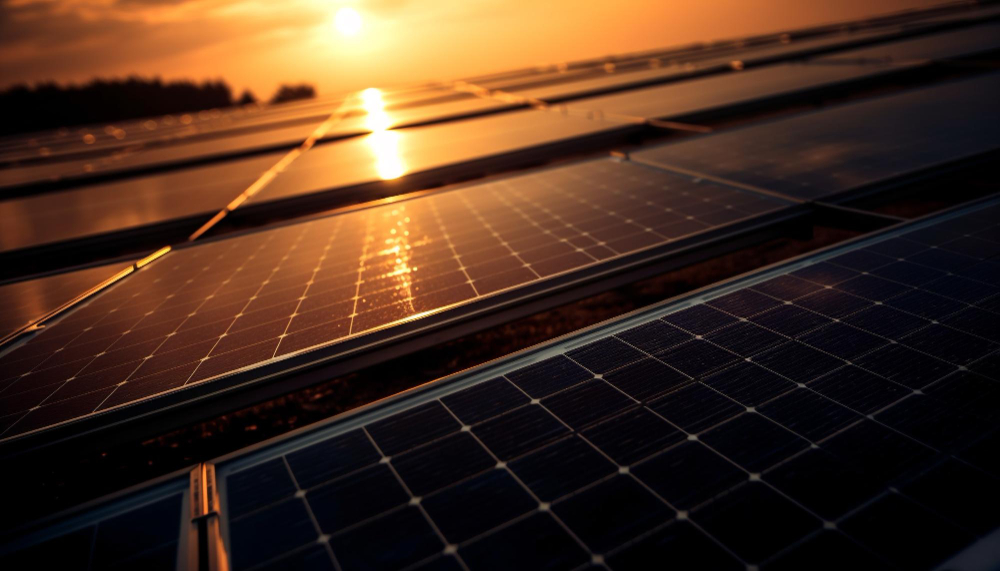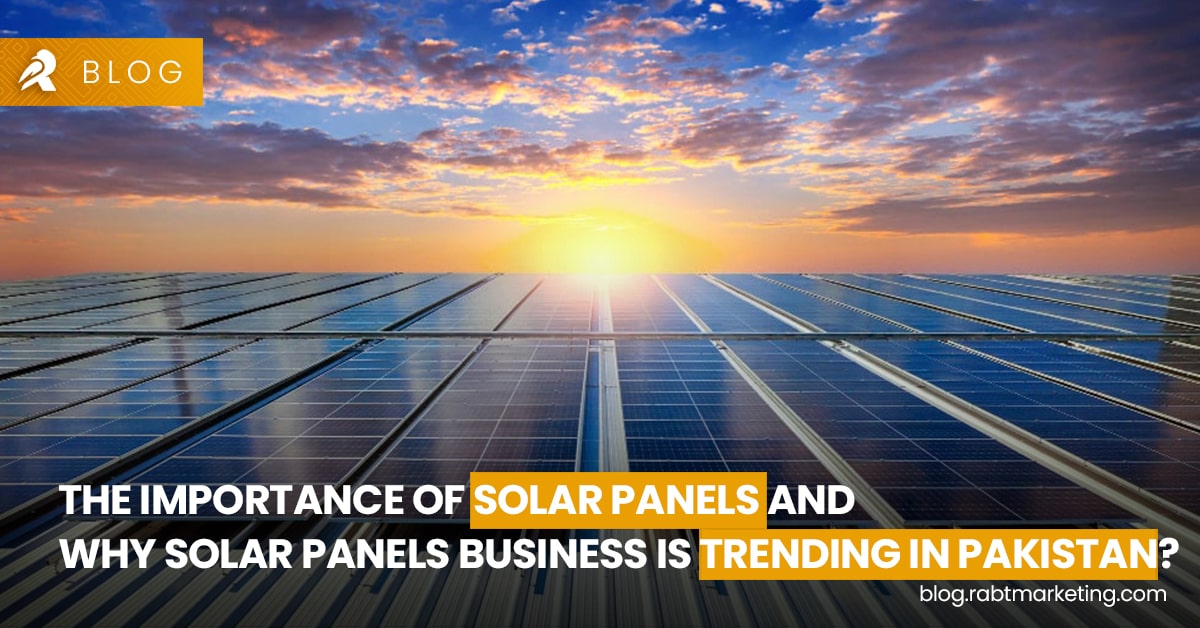In recent years, the global push for renewable energy sources has propelled solar panels into the spotlight as one of the most promising and profitable ventures. Solar panels, photovoltaic (PV) panels, are devices that capture sunlight and convert it into electricity. The widespread adoption of solar panels is transforming the energy landscape, and businesses in the solar industry are reaping substantial profits.
In Pakistan, its need has been rapidly increased due to the hike in electricity bills, and the solar panel business is a highly returning and profitable business nowadays. Hence, this Business has a lot of opportunities for growth.
In this article, we will discuss the composition, types and importance of solar panels in the current era and why their Business is highly profitable.
Composition of Solar Panels

Solar panels are composed of multiple solar cells, which are typically silicon-based. These cells contain semiconductors that capture photons from sunlight and convert them into electricity. When sunlight strikes the solar panel, the photons excite electrons within the cells and ultimately, Direct Current (DC) is generated. Then, Direct current (DC) is converted into alternating current (AC) electricity. This electricity can be used to power homes and businesses.
Solar Panel Layers
Solar Cells (Photovoltaic Cells): At the heart of every solar panel are the solar cells, also known as photovoltaic cells. These cells primarily convert sunlight into electricity. The most commonly used material for solar cells is crystalline silicon, either in the form of monocrystalline or polycrystalline cells. Thin-film solar cells are another variety that uses materials like amorphous silicon, cadmium telluride, and copper indium gallium selenide (CIGS).
Encapsulation: Solar cells are encased within a protective layer of encapsulant, typically made of ethylene-vinyl acetate (EVA). This layer helps to bond the cells to the front and back layers while protecting them from moisture and physical damage. It also enhances the optical properties of the solar panel.
Front Glass: The front surface of a solar panel is usually covered with tempered glass. This glass is designed to be transparent, allowing sunlight to pass through while providing mechanical support and protection for the delicate solar cells.
Back Sheet: The back sheet of a solar panel is often made from a polyester-based material, such as Tedlar. It serves as an additional protective layer, and it resists damaging environmental factors.
Types of Solar Panels
Solar panels come in several different types, each with its own unique characteristics, advantages, and applications. The following are the different types of solar panels.
- Monocrystalline Solar Panels Monocrystalline solar panels are renowned for their exceptional efficiency and sleek, black appearance. They are made from single-crystal silicon, offering a space-efficient and high-performing option for residential and commercial solar installations.
- Polycrystalline Solar Panels Polycrystalline solar panels, characterized by their blue-speckled appearance, provide a cost-effective alternative to monocrystalline panels. While they offer slightly lower efficiency, ranging from 13% to 16%, their affordability makes them a popular choice for budget-conscious consumers in various solar applications.
- Thin Film Solar Panels Thin-film solar panels, unlike their crystalline counterparts, are lightweight and flexible, making them suitable for unconventional installations, such as on curved or irregular surfaces. They offer a cost-effective alternative to traditional solar panels, although their efficiency typically ranges from 10% to 12%, making them a good choice for large-scale commercial or utility installations. While they may require more space for the same power output, their versatility and affordability have contributed to their growing popularity in specific solar projects.
- Bifacial Solar Panels Bifacial solar panels are an advanced type of technology that captures sunlight from both the back and front sides, allowing them to utilize reflected and diffused sunlight from nearby surfaces, enhancing their overall energy yield. These panels are particularly well-suited for ground-mounted installations, flat rooftops, or areas with high albedo, offering increased efficiency and versatility in solar power generation.
- Concentrated Photovoltaic (CPV) Solar Panels Concentrated Photovoltaic (CPV) solar panels are high-efficiency systems that use lenses or mirrors to concentrate sunlight onto small, specialized solar cells. With the ability to achieve remarkably high-efficiency levels, often exceeding 40%, CPV systems are ideal for regions with abundant direct sunlight and are employed in utility-scale solar projects in such areas, but they are more complex and require precise tracking to maintain their optimal performance.
Why Solar Panel Business Is Highly Profitable

Environmental Benefits:
Solar panels are environmentally friendly. They produce electricity without emitting harmful greenhouse gases, which helps combat climate change. As environmental concerns grow, many governments worldwide are offering incentives and subsidies to encourage solar adoption. This also has created huge demand, making the solar Business highly profitable.
Lower Costs:
Over the years, the cost of manufacturing and installing solar panels has significantly decreased. Technological advancements and economies of scale have made solar energy more affordable for consumers. As the upfront cost of solar panels decreases, the return on investment (ROI) for both residential and commercial customers becomes more attractive, driving business profitability.
Energy Independence:
Solar panels provide a degree of energy independence to homeowners and businesses. This independence is particularly appealing in underdeveloped countries like Pakistan. Customers are willing to invest in solar panels as a long-term solution to rising electricity bills and power outages.
Net Metering:
Many users have implemented net metering policies, allowing solar panel owners to feed excess energy back into the grid in exchange for credits on their electricity bills. This incentivizes solar panel installation and use, ultimately leading to increased profitability for solar businesses. Net metering also helps to reduce carbon emissions, as renewable energy sources are increasingly used to replace non-renewable energy sources.
Tax Incentives and Rebates:
Governments offer various tax incentives, rebates, and grants to promote solar energy adoption. These incentives make the installation of solar panels more attractive to consumers and increase the profitability of solar companies. This Business has great potential to benefit from tax incentives, government subsidies, and other government incentives. This adds an additional layer of profitability and security to the industry.
Technological Advancements:
Ongoing research and development in solar technology have improved the performance and durability of solar panels. More efficient panels capture more sunlight and produce more electricity, resulting in higher profitability for solar companies. In the future, more technological advancements are expected.
Expanding Markets:
Solar panel markets are expanding globally. Emerging economies, as well as established markets, are witnessing a surge in solar installations. The growing interest in sustainable energy sources and the need for cleaner energy options drive the profitability of solar businesses.
Long-Term Investment:
Solar panels are a long-term investment with a far-sighted vision. It will produce a high ROI (return on investment). The longevity of solar panels contributes to the steady and predictable revenue stream for solar businesses. Solar installations require minimal maintenance and are relatively inexpensive compared to other energy sources.
Read Also: 43 Most Profitable Businesses in Pakistan with Low Investment
Top Most Solar Companies in Pakistan
Many solar companies are generating huge revenue, and due to the current worse political situation in Pakistan, a number of consumers have been shifted to. But we enlist a few of them as a success story.
- SkyElectric Limited
- Pantera Energy Limited
- Alpha Solar
- 11stop.com
- Zi Solar
- Yellow dDoorEnergy
- Shams Power
- Safeway Renewable Energy
- Pakistan Solar Services
Conclusion Concluding the discussion, solar panels are advantageous technology and complex assemblies of different materials and components designed to capture sunlight and convert it into electricity efficiently. With advancements in technology and manufacturing processes, solar panels continue to evolve, becoming more efficient, durable, and affordable, contributing to the global shift towards renewable energy sources and making human lives easier.

